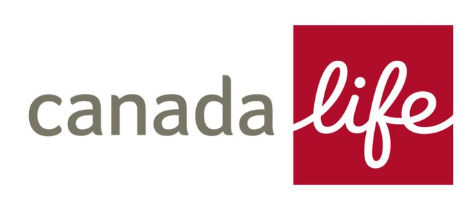Individual Life
Life insurance is a type of coverage that pays benefits upon a person's death to designated beneficiaries. In some cases, there may be a maturity date, where the insured, if still living, can receive the proceeds.
A small premium gives you immediate coverage and provides for a large death benefit payable upon the death of the insured to provide capital to provide an income for dependents.
Tax deferred interest accounts are allowed with some types of life insurance to offer insurance in tandem with an investment component, which can allow increased funds to pass tax free to heirs. This advanced estate planning tool is used by tax specialists who maximize the estate value while using life insurance. The investment after achieving growth can enhance retirement income.
Types of Life Insurance:
Life insurance may be divided into two classes:
Term Life
Insurance is less expensive but most term periods are only temporary.
- Temporary periods are set in periods such as 5, 10, or 20 years; or a lifetime level term to age 100.
- Other periods can run to age 65, 75.
- The premium remains constant for these terms.
- The cost of insurance for a certain level of death benefit is the essence of this plan, generally with less emphasis on a cash value, though some Term to age 100 plans have cash-out options, and some can be quickly paid up, while some also offer tax-deferral options.
- You can buy more term coverage for less premium, which does increase upon each term period renewal (for example a five-year term rises in cost in the sixth and eleventh year and so on).
- Term insurance usually can generally be converted to Permanent Life Insurance coverage without medical underwriting, but check with your financial security advisor about renewal and conversion options when you plan to buy a policy.
Permanent Life
Insurance continues to the decease of the insured or alternatively pays one a level or an increasing lump sum at a certain age of maturity (usually age 100), or offers cash value or tax-advantage or premium pre-payment incentives. Where there are cash values associated with a Permanent plan, the amount of risk is reduced for the insurer. This often allows the cost of the insurance to be lowered as the increasing cash funds accumulating in the plan, increasingly reduce by replacing, the level of insurance needed.
Permanent Life Insurance plans include:
- Whole Life, offering a level premium and a cash value table in the policy guaranteed by the insurer;
- Limited Premium Payment, where the policy can be paid up fully in a specific period of time (such as over 10 or 20 years; or paid up at age 65).
- Endowment Life where the cash value grows to a level equal to the insurance coverage, and
- A hybrid mixture of life insurance and investment referred to as Universal Life.
Critical Illness Insurance
Critical Illness Insurance is a plan contracted with a life insurer typically to make a lump sum cash payment if a policyholder is diagnosed with one of the critical illnesses listed in the insurance policy.
These policies can cover serious illnesses that can cause loss of independence, such as the main health threats of cancer, heart attack, and stroke. As well many more illnesses, the list of which we can provide as we go over the insurance planning with you.
The policy may also pay out regular income to a policyholder undergoing a surgical procedure, such as having a heart bypass operation.
The policy may require the policyholder to survive a minimum number of days from when the illness was first diagnosed (usually 30 days).
Disability Insurance
Disability Insurance provides a monthly income in the event you are incapacitated, and incapable of working due to an injury or illness. Often called “Income Replacement Insurance”, this coverage is important for self-employed individuals. It is also for those without disability insurance via their employer.
Your ability to earn income may be compromised through injury or illness if you become disabled. Your ability to pay bills or save for retirement could decline. Disability insurance plans are designed to help you meet necessary income requirements enabling you to concentrate on recovering from your disability and returning to an active income-generating life.
Generally, disability benefits are received if you can't perform the duties of your own occupation, a similar job in your field, or any job at all. How soon and for how long you can collect benefits is determined in your policy contract.
Income protection can provide income for disabled professionals such as lawyers or doctors, small business owners like plumbers or carpenters, leading business executives, as well as full- or part-time or home-based workers.
Disability insurance benefits are payable on a monthly basis during a disability for the benefit period of the contract, which can vary. When you recover from a disability, the policy continues, usually payable again for a subsequent or recurring disability.
Most people are aware of the importance of life insurance, but rarely think about having a disability despite the statistics indicating they are quite common. Death is inevitable, while disability is probable at any given age.
Individual Health and Dental Insurance
Our governments do not provide us with the level of healthcare you may need. As they cut back their levels of healthcare coverage, you may be left to pay for expenses such as:
- Prescription drugs
- Dental visits
- Eye exams
- Paramedical services
- Transportation by ambulance
Private Health and Dental Insurance plans are designed to cover individuals not protected or inadequately covered by a group health plan. These plans can benefit you by reducing your fees per visit to your dentist or health care provider.
Plans available offer:
- Single, couple or family coverage
- Potential tax-deductibility if you are self-employed
- Renewable coverage through to age 65
- Protection of the entire family, covering health, dental and prescription drug benefits
It makes sense to consider coverage for unexpected medical expenses that may supplement your current health care plan. These plans generally cover chiropractors, osteopaths, naturopaths, podiatrists, registered massage therapists, acupuncturists, physiotherapists, psychologists, homecare nursing and necessary medical devices and equipment.
Term Insurance to Cover Your Mortgage
Mortgage insurance is creditor insurance where financial institutions offer to pay off the remainder of a mortgage if the mortgagor dies during the term of the mortgage.
Another strategy to achieve this uses personally owned life insurance, which gives you more flexibility insuring your mortgage liability. Compare the mortgage insurance your bank or financial institution uses for your mortgage creditor life insurance with buying your own personally owned term insurance.
Mortgage Life Insurance from the financial institution
- Premiums can be much higher
- The death benefit replaces only the remaining balance of your mortgage balance
- Premiums do not reduce when your mortgage debt is reduced
- The death benefit only pays off your remaining mortgage debt
- The contract stipulates that the financial institution is the only life insurance beneficiary
- You cannot alter the irrevocable beneficiary of the contract
- The entire amount of life insurance is lost upon mortgage repayment, or when in default
- The mortgage life insurance is not transferable to another financial institution or private lender
- When you move your mortgage to another firm, you generally lose the coverage issued from an existing institution. If you have health concerns you may not be able to buy more coverage
- Because so few health questions are required, underwriting is often done at time of claim, resulting in denied claims.
Creditor insurance may cover two parties who jointly mortgage their property. However, it pays only on the first death, even if the two were to die. When one spouse dies, creditor insurance no longer covers any survivors. In contrast, by owning your own insurance policy, two spouses or partners may each own separate life insurance death benefits. In the case where both parties die, double the benefit would be paid, thus adding increased value to the estate. If one survives, the coverage on that life continues.
Your own Term Insurance
- You can set up multiple beneficiaries, including a fund to pay off some or all of your mortgage debt.
- Beneficiaries can choose to not pay off the mortgage if they prefer to pay off higher interest debt
- You can add or revoke beneficiaries.
- Your life insurance face benefit amount does not shrink with a reducing mortgage debt, and can actually increase with some plans. Your coverage level is controlled by you.
- Most term plans are convertible to permanent plans, without a medical exam, even if your health declines.
- You needn't qualify for new mortgage life insurance if you move your mortgage to a new financial institution. You just continue using your existing term plan, which covers you regardless where your mortgage is.
- Once your mortgage is repaid or reduced, you will have life insurance to cover other liabilities or for other estate planning purposes.
- Personally owned life insurance can normally be converted to permanent insurance for the same or a lesser amount.
- In most cases, you can reduce your coverage over time to ensure the proceeds pay your final expenses, removing financial burden from your loved ones.
- Term insurance allows you to buy coverage applicable to your entire capital needs, in the event of death.
- A custom life insurance plan often offers other optional benefits, such as riders that can include: life insurance coverage for children, an investment feature with tax advantages, disability coverage, critical illness coverage, or a bundled mixture of term and permanent life insurance.
- Many plans offer level premiums for longer periods, and some life insurance plans can be prepaid.
- You have more control over the cost of premiums, which can go up over time if you don't own and control the life insurance contract.
- Your insurer underwrites your policy when you apply for it. Other mortgage life insurance from a financial institution offers you little control and may choose to underwrite your health history at claim time.
Ask your financial security advisor how to shift out of mortgage life insurance into personally owned life insurance to achieve the above advantages.
Estate Planning
There are many ways to reduce your estate liabilities. You work hard to earn a living, save for retirement, and own property. It is important to know what your estate liabilities are in relation to: capital gains, mortgage debt, car loans, unpaid taxes, and business-related liabilities. Consider reducing these liabilities:
Reduce the impact of income taxes. Here are some methods to reduce taxes due upon your death:
- Use the spousal (and disabled child) rollover provisions of RRSPs or RRIFs.
- Leave assets that have accrued capital gains to your spouse to defer tax.
- Leave assets without capital gains to other (non-spouse) family members.
- While you are alive, gradually sell assets having capital gains, to avoid dealing with the gains all at once in your estate.
- Purchase life insurance to cover capital gains taxation in the estate.
- Taxes may be payable on gains in relation to:
- income-producing real estate, a second residence, or cottage.
- any other assets left to surviving family members, such as shares of a business.
- Consider charitable donations to lessen taxes in the estate.
Reduce probate fees. Probate fees will be based on the value of assets administered through your will. Here are some ways to reduce probate fees:
- Establish a spousal trust during your lifetime to hold assets or property for the sole use of your spouse.
- Own assets jointly with your spouse.
- Distribute assets or cash while alive.
- Name a beneficiary (not the estate) on life insurance policies.
- Include an alternate beneficiary on your life insurance policies in case your initial beneficiary predeceases you, or dies simultaneously (that way, probate fees will be avoided on the proceeds).




